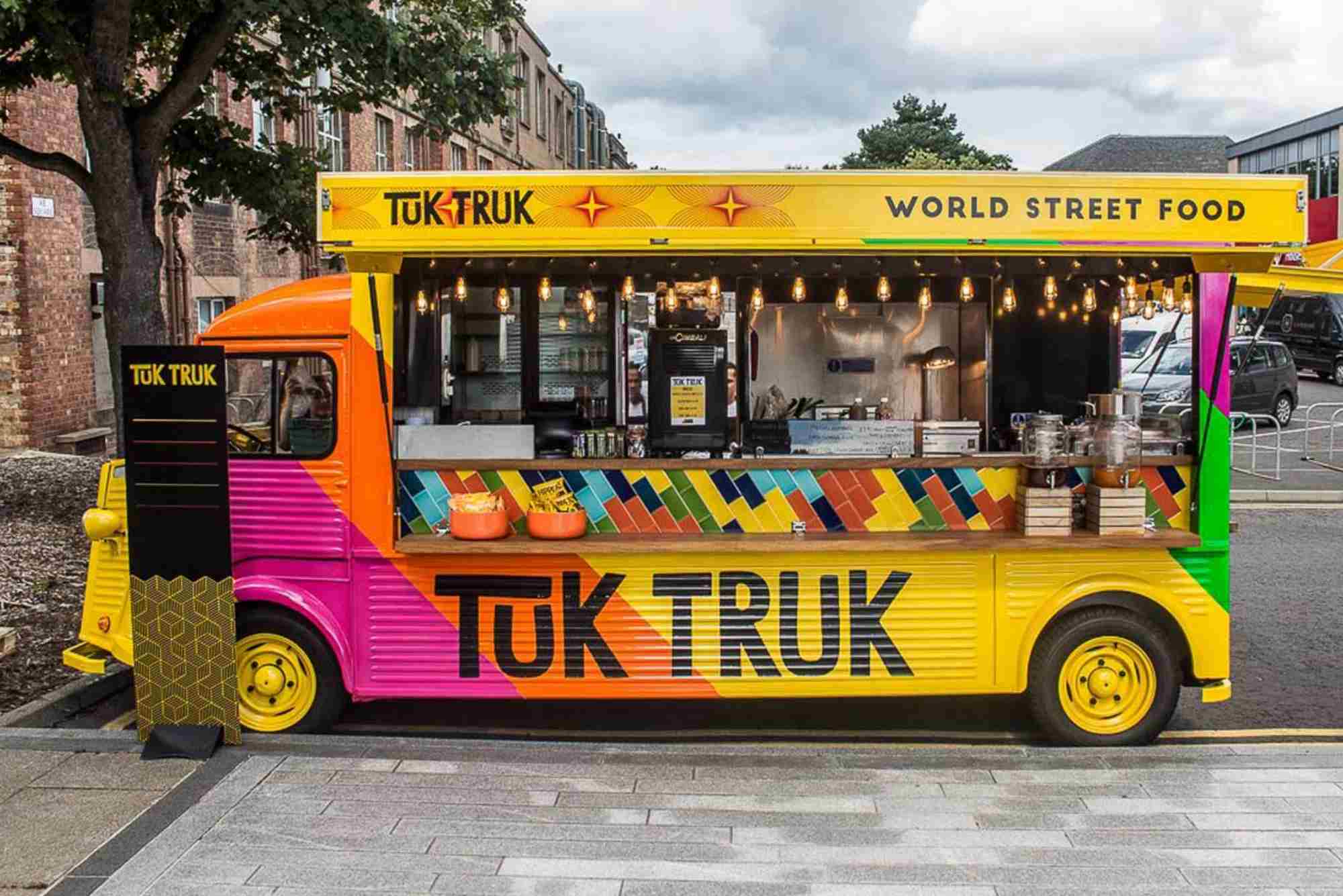How to Start a Food Truck Business in England – Complete Guide
Starting a food truck in England is an exciting opportunity for entrepreneurs who love food and want to share it with the world. From vibrant city centers to countryside festivals, mobile catering is booming across the UK. But behind every successful food truck is careful planning, legal compliance, and a well-crafted business strategy.
Whether you’re dreaming of selling gourmet burgers in London or authentic curry at a street market in Manchester, this complete guide will walk you through every essential step to help you hit the road with confidence.
Why Start a Food Truck in England?
The food truck industry in England has grown rapidly over the past decade. Consumers love convenience, variety, and the uniqueness food trucks offer. Lower startup costs compared to restaurants make this a viable entry point into the food business. With festivals, markets, and events running year-round, there’s always a place for a new and exciting food truck to thrive.
Moreover, the flexibility in location and lower overheads attract many first-time entrepreneurs. You can adapt your menu, pricing, and location based on customer feedback and seasonal demand.
Step-by-Step Guide to Launching a Food Truck in England
Research and Planning
Before making any financial commitment, it’s important to conduct thorough research. What kind of cuisine do you want to offer? Is there demand for it in your target location? Check out local competitors, analyze price points, and study popular street food trends in England. Use this research to create a solid business plan.
Create a Business Plan
A business plan serves as your roadmap. It should outline:
- Your food concept and menu
- Target market and ideal locations
- Equipment and vehicle needs
- Pricing strategy
- Financial projections
- Marketing and growth plans
Investors and lenders will want to see this, especially if you’re applying for funding.
Choose the Right Food Truck or Trailer
Your vehicle is your restaurant, so choose wisely. You can buy a new truck, lease one, or convert a van into a mobile kitchen. Size, layout, and equipment options vary, so think about your cooking process and how many staff you’ll have inside. Ensure it meets UK food hygiene and safety standards.
Legal Requirements and Licensing in England
Register Your Business
First, you must register as a food business with your local council at least 28 days before trading. This applies whether you’re a sole trader, partnership, or limited company.
Get the Right Licenses
Food truck businesses in England may need several licenses and permits:
- Street Trading License: Required to sell food in public places. Contact your local authority as rules vary.
- Food Premises Registration: Mandatory for all food businesses.
- Gas and Electrical Safety Certificates: Your equipment must be checked regularly.
- Employer Liability Insurance: If you have staff.
- Public Liability Insurance: Covers claims from customers.
Don’t skip this step — operating without proper licenses could shut you down and result in heavy fines.
Pass Food Hygiene Inspections
Once registered, your vehicle will be inspected by your local Environmental Health Officer. Aim for a high hygiene rating from the Food Standards Agency (FSA). Train your staff in food hygiene and handling, and display your rating proudly.
Setting Up Your Menu and Pricing
Your food is your brand. Keep the menu simple, focused, and cost-effective. Choose items that are easy to prep and serve, even in high volumes. Remember, a shorter menu speeds up service and reduces waste.
When setting prices, consider ingredient costs, local competition, and your target audience. You’ll need a healthy margin to cover fuel, maintenance, and licenses.
Finding the Right Location
Location can make or break your food truck in England. Great spots include:
- Busy high streets
- Farmers’ markets
- Music festivals
- Business districts
- University campuses
- Sports events
Check if you need permission to trade in private areas or apply for permits in public spaces. Some councils also run food markets that require vendors to apply months in advance.
Branding and Marketing Your Food Truck
Branding is more than just a logo. It’s how people remember you. Choose a catchy name, a bold design for your truck, and a consistent color scheme. Your food, vibe, and visuals should all align.
Social media is your best friend. Post mouth-watering photos, share your location daily, and engage with your followers. Create a Google Business Profile so people can easily find your truck and read reviews.
Also, consider loyalty programs, special deals, and collaborations with local influencers or businesses.
Equipment and Supplies
Aside from the vehicle, you’ll need essential kitchen equipment like:
- Fridges and freezers
- Fryers or grills
- Water tanks and sinks
- Storage and prep surfaces
- Generator or power source
Use reputable suppliers and always have backup ingredients for your popular items. Don’t forget disposables like napkins, containers, and cutlery.
Staffing and Operations
You’ll need help during busy shifts. Hire staff who are reliable, fast, and friendly. Everyone should have basic food hygiene training. Also, set clear roles — cashier, cook, cleaner — to keep operations smooth.
Create standard operating procedures (SOPs) for food prep, cleaning, customer service, and closing. This ensures consistency and saves time during rush hours.
Costs and Funding Options
Starting a food truck in England typically costs between £15,000 to £50,000, depending on the vehicle and setup. Major expenses include:
- Vehicle purchase or conversion
- Equipment and supplies
- Licensing and permits
- Branding and signage
- Marketing costs
- Initial stock
You can finance your venture through personal savings, business loans, crowdfunding, or small business grants. Some regions offer support schemes for startups, so check your local council’s website.
Challenges to Expect and How to Overcome Them
Running a food truck isn’t easy. Food Truck England Common challenges include:
- Weather dependency (rainy days can reduce footfall)
- Mechanical issues with the vehicle
- Finding legal parking spots
- Managing inventory in a tight space
To succeed, stay flexible. Have a Plan B location, get regular vehicle servicing, and track what sells best. Adapt quickly based on feedback and sales trends.
Hit the Road with Confidence
Starting a food truck business in England is both rewarding and challenging. With the right planning, licenses, and marketing, you can turn your culinary passion into a thriving mobile venture. Focus on quality, cleanliness, and customer experience — and you’ll build a loyal following wherever you go.
If you’re serious about launching your food truck, now’s the time to take action. Begin your research, draft your business plan, and make your mark in England’s vibrant street food scene.
FAQs
Do you need a license to run a food truck in England?
Yes, you need multiple licenses including a street trading license, food premises registration, and safety certificates. Always check with your local council for specific rules.
How much does a food truck cost in the UK?
Costs can vary from £15,000 to £50,000, depending on whether you buy a new truck or convert a van. Don’t forget recurring costs like maintenance, insurance, and fuel.
Can I park my food truck anywhere in England?
No, you must get permission to trade in most areas. Public spaces often require permits, while private locations need landlord approval. Check local regulations.
Is a food truck profitable in the UK?
Yes, with the right concept, location, and marketing, food trucks can be highly profitable. Lower overheads and flexible menus help boost margins.
How long does it take to start a food truck business?
With proper planning, it can take 2–4 months to get everything in place — from licenses and inspections to vehicle setup and menu design.





